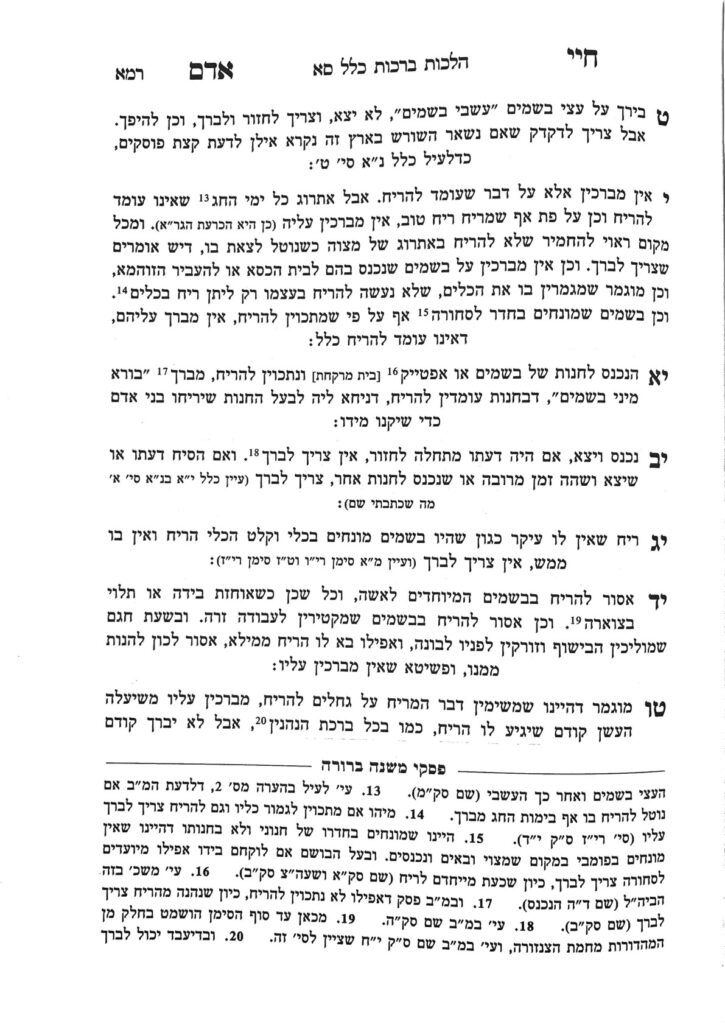We are continuing in siman 14. We learned that the Chayei Adam holds that besamim belonging to a specific woman are assur to smell, both when she is wearing them and when she is not, and therefore no bracha is made on them. We learned that many disagree with the Chayei Adam, and hold that if the woman is not wearing them, it is muttar to smell them, provided one knows they will not come to hirhur.
Rav Bentzion Abba Shaul zt”l adds that the Chayei Adam is discussing a specific type of besamim, where they would take a packet of a good smelling spice and wear it around their neck or hold it. In our contemporary perfumes, since the perfume sprayed on the person separates from the bottle, the perfume which is still in the bottle is considered undesignated, and receives the status of perfume which has not yet been designated for a specific person. We learned yesterday (shiur 1189) that such a perfume is muttar to smell according to everyone, and one would even make a bracha on it, provided it does not bring a person to hirhur, and provided it is made from a natural source
The Chayei Adam continues, and writes that in the same way it is assur to smell besamim designated for a woman, it is assur to smell besamim designated for avodah zarah. At the time of their holidays, they would throw a type of incense in front of their bishops, and it is assur to intentionally smell that incense.
This halacha applies similarly regarding Pesach. It is assur to smell chametz on Pesach. If one passes by a bakery and smells fresh chametz, it is assur to intentionally take a whiff of the smell. The smell that wafts to a person on its own is not assur.
The question arises that if one has two routes they can take, one which will pass them by one of these assur smells and one which will not, are they obligated to take the route which avoids the smell. Even if a person is sure of themselves that they will not deliberately take a smell, are they obligated to avoid the smell which will waft towards them unintentionally.
The question is dependent on whether we consider the unintentional smell as inherently muttar, or whether it is also assur, but since one is an ones (placed in an unavoidable situation) it is not their fault. However, if one chooses to go down a route in which they know they will be placed in an unavoidable situation, it can no longer be considered ones. The Chayei Adam, in other places, writes that the halacha is in accordance with the second view, and therefore one should avoid the route if there is a realistic alternative.
Summary
Contemporary perfumes, while still in their bottle, are muttar to smell and one may make a bracha on them, provided they are not synthetic, and provided that they do not cause one hirhur.
Besamim of avodah zarah are assur to smell.
One is considered an ones on smell which wafts to a person unintentionally. However, if there is a way to avoid the smell, one is obligated to do so.


